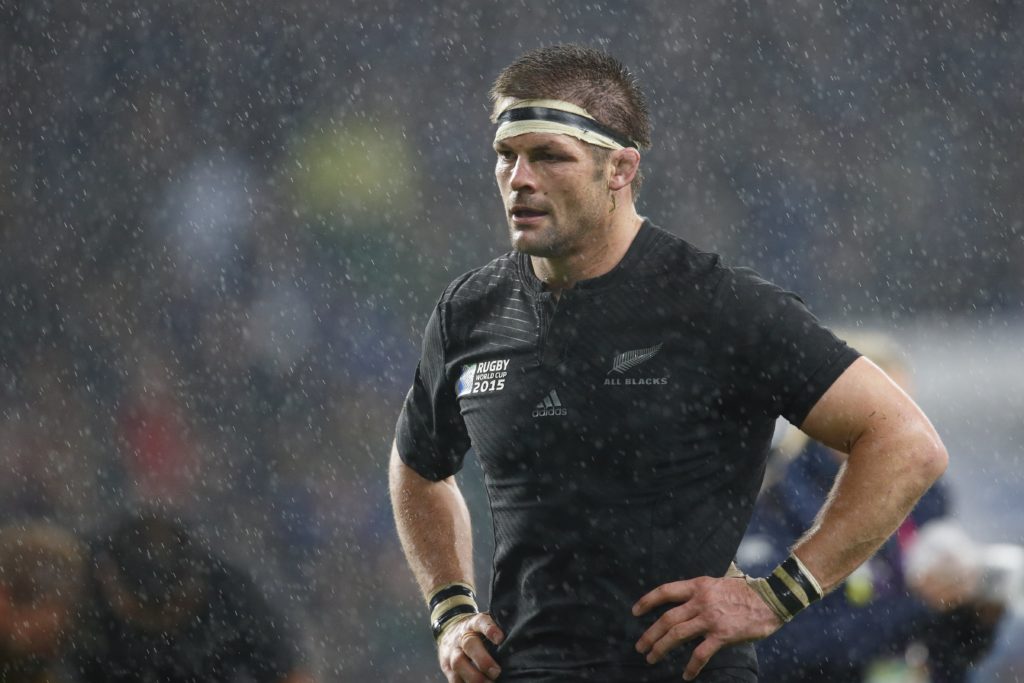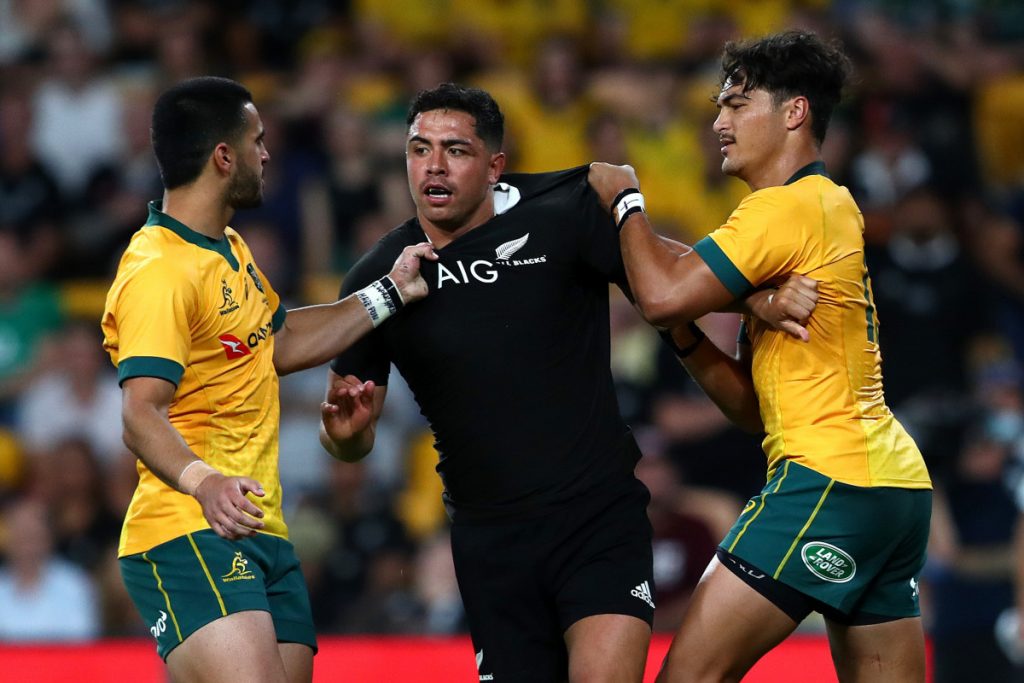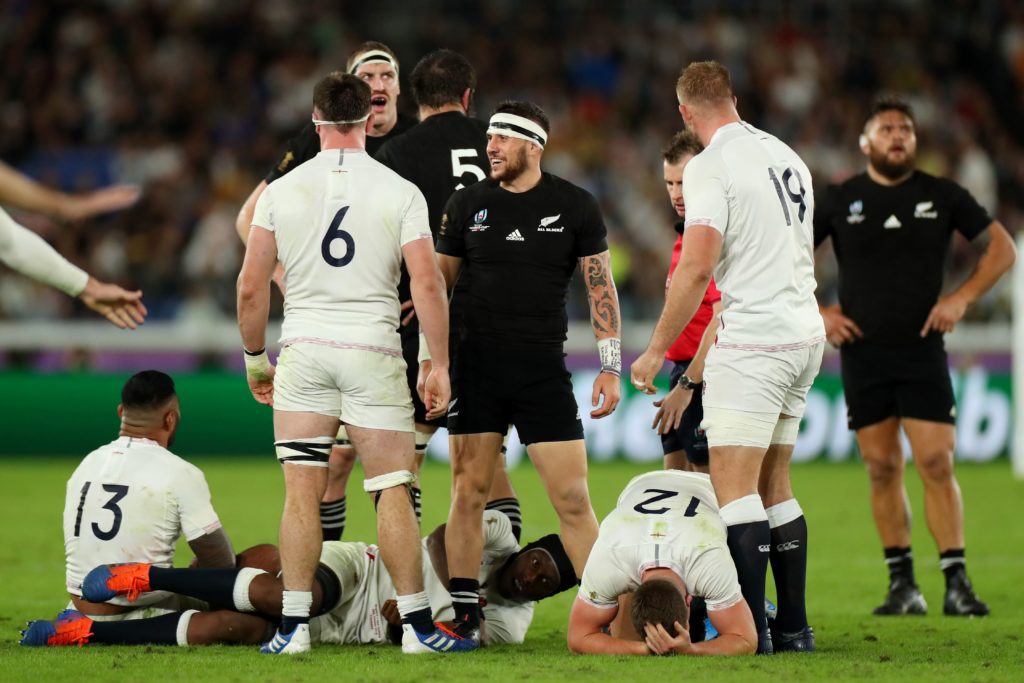There are a few lines in Richie McCaw’s biography The Open Side which the All Blacks management may wish to reflect on when they consider the defeat to the Wallabies in Brisbane and the team’s other recent failures, including the Bledisloe I draw in Wellington last month, the setback in Perth last year and, most significantly of all, the Rugby World Cup semi-final defeat to England.
In his book McCaw addresses the importance of the mental side of the game, an aspect the All Blacks traditionally neglected to their detriment and especially at World Cups, where for 16 years they failed to live up to their expectations, not to mention those of an entire nation.
It was an approach only fully committed to after the calamity in Cardiff in 2007 when they crashed out in their quarter-final to France, a defeat during which the All Blacks appeared stunned – almost hostages to their own misfortune – and it created not only a post mortem which occupied New Zealand for months but also a new way of thinking for the retained coaching group.
The contract extensions for the now knighted Sir Graham Henry and Sir Steve Hansen were controversial at the time. Critics, and there were many, demanded change. Change did come, but it was behind the scenes.
For Henry and Hansen, it came with their determination to harness the power of the mind; the minds of their management team and those of their players.

Former skipper McCaw, revered in New Zealand for his mental toughness, is unequivocal about the importance of having the skills to cope with highly stressful situations on the rugby field and is in no doubt the influence of noted sports psychologist Ceri Evans, and others, helped pave the way for the All Blacks’ World Cup victory in New Zealand in 2011 and the triumph in the United Kingdom four years later.
“Acute stress comes when the brain perceives a threat, either predicted (opposition or individuals do something you’ve planned for) or unpredicted (they do something you haven’t planned for),” McCaw writes.
“Either is okay, as long as it’s not accompanied by a feeling of helplessness. That’s when adrenalin-fuelled responses overwhelm the individual, and you get aggressive, or you try to escape, or you go passive – so it’s fight, flight or freeze. I know that I end up becoming passive.
“When any of those things happen, decision making becomes muddled, clarity is lost and accuracy is compromised. If you go into freeze mode, your reactions are dulled, you go through the motions, lack coordination, become indecisive and withdrawn, you don’t hear people around you, you don’t see what’s in front of you any more. You become captured by bad-experience pictures from the past or fear of future consequences.”
McCaw goes into more detail about how Evans helped the players recognise and progress from a “Red Zone” panicked state during which poor decisions are often made, into a “Blue Zone”, a state in which players are far more in control of their emotions and are better able to make the right calls.
When any of those things happen, decision making becomes muddled, clarity is lost and accuracy is compromised. If you go into freeze mode, your reactions are dulled, you go through the motions, lack coordination, become indecisive and withdrawn, you don’t hear people around you, you don’t see what’s in front of you any more. You become captured by bad-experience pictures from the past or fear of future consequences.
Former All Blacks captain Richie McCaw
Unfortunately for the All Blacks, there were too many players in the Red Zone in Brisbane last weekend. They were far too emotional – Anton Lienert-Brown and TJ Perenara were clearly incensed on a couple of occasions, an obvious frustration which played directly into the Wallabies’ hands.
Indeed, Australia appeared willing and able to provoke at every opportunity, a point made afterwards by head coach Ian Foster. Like in Wellington, there were several off-the-ball incidents at Suncorp Stadium – a push, a jersey pull, a subtle knee to a prone body – designed to raise temperatures and take the All Blacks out of their comfort zone and the visitors simply weren’t good enough to realise that and come up with a plan to fix it.
“We were being pushed in areas and provoked in areas, and again that’s a tactic that teams use against us, and good on them,” Foster said immediately afterwards.
“We’ve got to be better than that and smarter than that.
“We gave away some kickable penalties. And then that yellow was sort of on top of that and probably just reflected a little bit of frustration when there didn’t need to be any frustration.”

Scott Barrett’s yellow card in front of the All Blacks’ posts in the final quarter – the result of a ridiculously cynical infringement when he knocked the ball out of halfback Nic White’s hands while lying in a ruck – was another obvious signal that the All Blacks as a collective were way off in terms of clear thinking.
They should also have coped far better with the dismissal of prop Ofa Tuungafasi given the Wallabies lost loose forward Lachlan Swinton only minutes later.
Instead of regrouping and finding their way back to the Blue Zone – usually done by controlled breathing and a shifting of attention to something external (the grandstand or their big toes in their boots, for example) – they became ever more frantic and error-ridden as they chased the game.
They remained in the Red Zone. They appeared filled with adrenalin and in the fight phase, whereas in Wellington in Bledisloe I they were far too passive.
It’s clear the All Blacks’ mental state fluctuated considerably over the four tests against Australia. What isn’t clear is why.
The Wallabies got good gains there simply by being direct, an approach the All Blacks adopted at Eden Park a week later for the first win under Foster’s reign, and the demolition in Sydney in Bledisloe III which saw them retain the old trophy once more.
It’s clear the All Blacks’ mental state fluctuated considerably over the four tests against Australia. What isn’t clear is why. The retirements of Kieran Read and Ben Smith and the absence of Brodie Retallick have probably contributed to that inconsistency, along with an influx of several new and inexperienced players.
But the All Blacks were frantic in Perth last year too – and virtually from the first whistle – and Scott Barrett’s red card for a head high tackle on Michael Hooper sent them further into the Red Zone. Read and Smith started that test. The result was a 47-26 defeat.
Nearly three months later, at Yokohama, the All Blacks, led by Read and his lieutenants Retallick and Sam Whitelock, were passive in their defeat to England which was more lopsided than the 19-7 score suggests.
They were pushed around almost at will by a pack and a midfielder in Manu Tuilagi who put England immediately on the front foot. The defending champions were physically and mentally dominated.
They rallied via Ardie Savea’s lineout steal and try – which came directly from an England overthrow – but in the words of McCaw, they appeared to go through the motions at the end and lacked coordination, as though they were powerless to change events as they happened around them and in spite of them.

The one half chance they had to get in front was blown by an impetuous, uncontrolled moment from Whitelock when, after winning a penalty that would have enabled the All Blacks to kick into the corner and set a driving maul, he lashed out and pushed over Owen Farrell after the whistle had been blown. The penalty was reversed and there it was again – emotion debilitating the performance.
As Foster continues his rebuilding phase with France 2023 in his sights, addressing that inconsistency in his players’ attitudes and inability to withstand pressure should be a priority.
In truth, those inconsistencies crept in during the final stages of what otherwise was a highly successful Steve Hansen tenure, so the newcomers to Foster’s group may not be the issue as much as the messages themselves and those delivering them or how they are delivered. There must be a recognition that what worked in the past may not necessarily be working now.
McCaw felt a helplessness in Cardiff that he never wanted to experience again on a pitch and he worked as hard on his mental skills as much his physical fitness.
To paraphrase Evans’ advice to McCaw in 2011 regarding how to get through a World Cup with a broken foot, seeking greater mental consistency is the challenge for Foster and company. Now it’s about how they deal with it.
More from Patrick McKendry
If you’ve enjoyed this article, please share it with friends or on social media. We rely solely on new subscribers to fund high-quality journalism and appreciate you sharing this so we can continue to grow, produce more quality content and support our writers.


Comments
Join free and tell us what you really think!
Sign up for free